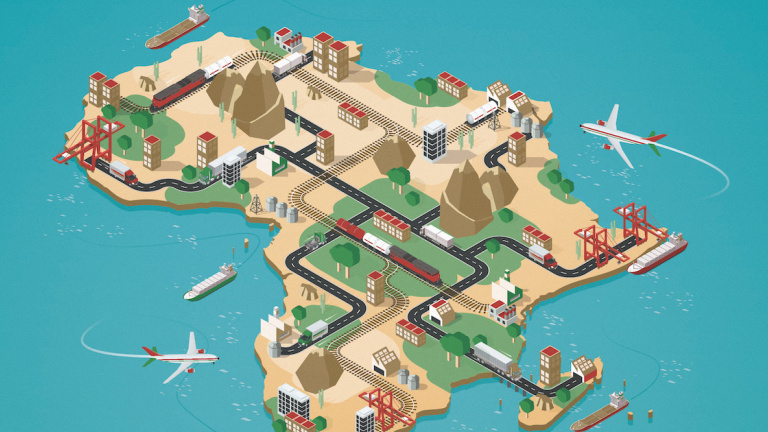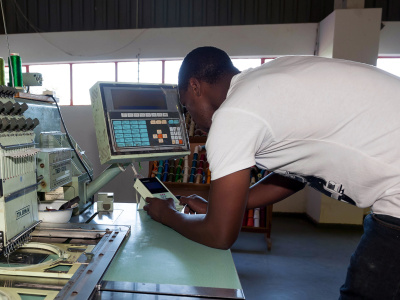
Towards an Africa-Europe trade partnership
“A wise person is one who listens to advice”, says a Kikuyu proverb. It is in this spirit that the European Commission has published Towards a Comprehensive Strategy with Africa. Any Africa-EU strategy should be jointly developed, jointly owned and jointly implemented by the EU and Africa. The same is true of our trade relationship.
Stronger Africa-EU trade relations
Strengthening relations between the EU and Africa was designated a high-priority objective in my mission letter from President von der Leyen when she took leadership of the European Commission last year. This was no surprise. Africa and the EU have so much to gain from each other, and many opportunities to make our ties even closer.
EU-Africa trade and investment hold huge potential for the future. Africa is the continent with the youngest population, with an average age of 21. At the same time, we are seeing rapid digitalisation. Africa already has 122 million active users of mobile financial services – more than half the global total. Growth on the continent is on track to continue, with the number of smartphone connections expected to double from 315 million in 2015 to 636 million by 2022. This is twice the projected number of users in North America. Mobile data traffic across Africa is expected to increase sevenfold over the same period. Africa’s future is one of youth, growth and connectivity.
Africa has much to gain from trading with the EU too. The EU is already Africa’s largest partner for both exports (36%) and imports (33%), dwarfing Africa’s other trade partners, including China (9% exports, 13% imports), India (9% exports, 5% imports) and the United States (7% exports, 5% imports). Beyond trade, the EU is the biggest investor in Africa. Pre-Brexit EU investment stocks totalled €261 billion, representing 40% of foreign direct investment in Africa. As our relationship strengthens, so will our trade and investment flows.
Africa-EU trade relations have entered an era of progressive and positive dynamics. More sub-Saharan African countries are concluding Economic Partnership Agreements (EPAs) with the EU. These are flexible and adjustable tools that respond to our African partners’ development needs. They are also intended to evolve – their modernisation has already started with the EU and 5 Eastern and Southern African countries negotiating an upgrade to their EPA, including provisions on services, investment, trade and sustainable development, as well as other issues. Regional economic integration remains at the heart of these agreements, which also function as building blocks on the road to continental integration. The experience and tools that African countries have developed in negotiating and implementing trade agreements with the EU can be put to good use at the African continental level. However, the road ahead is not easy and there are many challenges to overcome.
But it is worth it. Boosting intra-African trade would not only support development and sustainable growth on the continent, it would also be an opportunity to boost cooperation and trade between our continents. This is why support for the African Continental Free Trade Agreement (AfCFTA) is a cornerstone of the EU’s trade strategy with Africa. This includes technical and financial support. It also entails building on our current trade cooperation instruments, such as the EPAs and trade agreements with North African countries and, in the case of Tunisia and Morocco, upgrading these to deep and comprehensive free trade agreements. It also means sharing the lessons of our own continent, which has seen unprecedented successes in regional integration.
Africa and the EU also have to step up efforts to promote the sustainability and inclusiveness of initiatives. Building a sustainable cocoa value chain with the main producing countries, for instance, requires tackling social and environmental issues at the various stages of the supply chain, ranging from deforestation to child labour and ensuring decent incomes for cocoa workers.
The African Union (AU) has already taken impressive steps to build a framework and a design for closer continental economic integration. These have brought the AfCFTA closer and closer to implementation, a historical milestone that the EU sincerely supports.
Negotiation to implementation
The EU has been one of the world’s most active trade negotiators in recent years. We now have over 40 agreements with no less than 70 countries. These are more than simple economic pacts. They are strategic alliances for open trade at a time of rising protectionism. They are foundations for stability when the global environment is uncertain. However, unless they are properly implemented, their benefits cannot be reaped. In the EU we know this all too well. Implementation and enforcement have been critical to the success of the EU internal market.
It was with this in mind that the President of the European Commission assigned me another priority as Commissioner for Trade: to address the gap between negotiation and implementation. For this, I am appointing a Chief Trade Enforcement Officer, who will focus on identifying and overcoming barriers to our trade agreements achieving their goals. In Africa, we encounter a similar implementation gap. The EU and African countries should work together to overcome this gap, by implementing and upgrading our existing trade agreements and by preparing for implementation of the AfCFTA even before it is fully ready to be applied.
This will require more engagement and interaction on both sides and at all levels. I am committed to this process. I got to know the continent well during my tenure as Commissioner for Agriculture, and I look forward to continuing this engagement as Commissioner for Trade. I have already met with my AU counterpart, Commissioner Muchanga, to discuss common challenges and solutions.
Long-term vision
In Europe, we have a long-term vision for where this road leads: to a continent-to-continent free trade area. Everything we do in trade is in service of integrating our economies further. The EPAs are a case in point. We are building the foundations for a continent-to-continent agreement, if and when our African partners are ready for this. We have done a lot for economic integration in and with Africa, but there is still much more to do. The AfCFTA is critical in this, and that is why it has our full support.
But we must move one step at a time. I began this article with a proverb from Kenya, and I will close it with an Irish proverb: “B’fhearr éin ar an lámh ná dá éin ar an gcrainn”, or “a bird in the hand is better than two in the tree”. Before we take on ambitious new objectives, we need to work hard to make what we already have work well, and build on that.
About the author
Phil Hogan is the European Commissioner for Trade since 2019. He was previously European Commissioner for Agriculture and Rural Development between 2014 and 2019.
Read the full magazine issue







